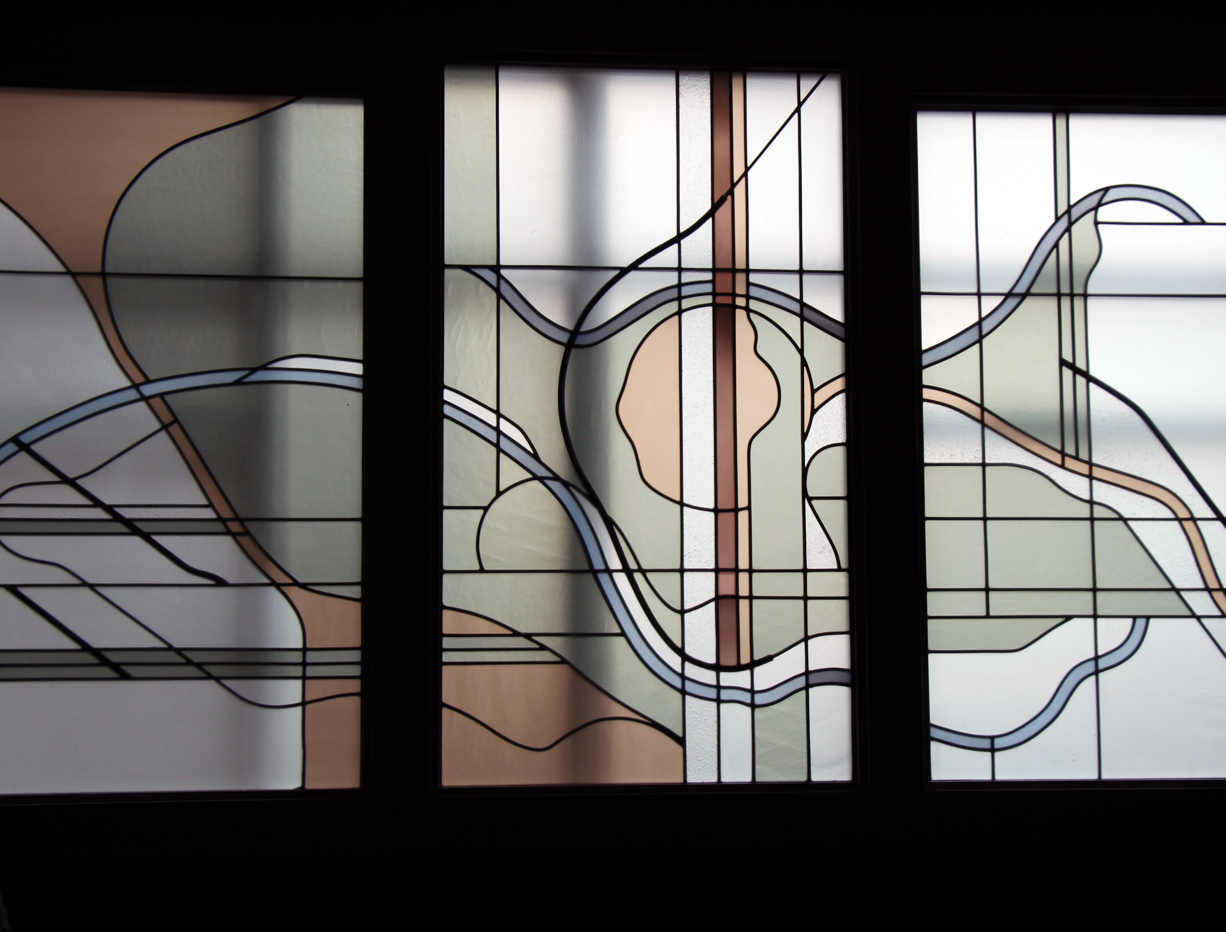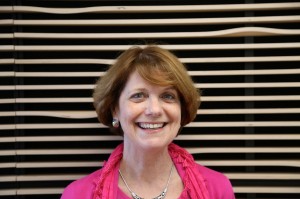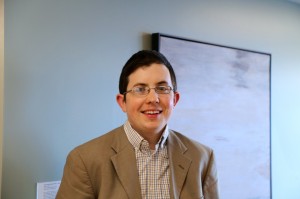
Hospital Chaplains: A Refuge of Peace in Times of Challenge
Did you know that in addition to offering dozens of cutting edge medical specialties, the University of Washington’s two medical centers both offer Spiritual Care services? I spoke with Sean Doll O’Mahoney, BCC, ACPE, associate supervisor and interim director of Spiritual Care at Harborview Medical Center, and Amy Furth, BCC, ACPE, supervisor and clinical manager at UW Medical Center to learn more about their work.
What inspired you to go into this line of work?
Amy Furth: I never intended to become a hospital chaplain. Clinical pastoral education is a requirement for ordination in many religious traditions. I had some trepidation when I started my clinical training at NYU. It turns out, I totally loved it! The work itself is very relational. As spiritual care providers, we are invited into vulnerable times in people’s lives, exploring what is meaningful to them while they experience challenges. This is a real privilege and often feels like sacred ground.
 Sean Doll O’Mahoney: My pathway to the chaplaincy began with my Catholic faith. I studied at seminary and explored lots of different ways of doing ministry. I did a spiritual care internship as part of my studies and absolutely loved it. Chaplaincy allowed me to meet with a rich, diverse group of people who hold a wide breadth of beliefs. There are lots of opportunities for creativity as a chaplain, and I found it meaningful to hear the beliefs and stories of patients we serve.
Sean Doll O’Mahoney: My pathway to the chaplaincy began with my Catholic faith. I studied at seminary and explored lots of different ways of doing ministry. I did a spiritual care internship as part of my studies and absolutely loved it. Chaplaincy allowed me to meet with a rich, diverse group of people who hold a wide breadth of beliefs. There are lots of opportunities for creativity as a chaplain, and I found it meaningful to hear the beliefs and stories of patients we serve.
What does Spiritual Care services offer to patients and their families?
SD: At Harborview, we offer 24/7 spiritual support for patients, families and staff. The heart of what we do is listening. We listen for what makes a person themselves rather than just their medical labels? What is important and distinctive about them?
These conversations are a process of discovery where we learn about a patient’s unique values, traits, and beliefs. By hearing these, witnessing these, we can work with the medical teams to help them gain a richer understanding of the patient as a person. This helps the team relate to the patient as a spiritual being and human being.
As a major trauma center, many of our patients are from out of town and so we help connect them to local members of their faith community so that they can feel a level of community support. Similarly, we have a team available to support those who are facing death alone. When requested, members of our team stay with patients, listen, and support them as they make the transition through end of life.
AF: Yes, I totally agree with Sean’s description. As people tell us their narratives they are authoring their own stories at a time when their energies are focused on what matters most to them. They hear themselves and their families take part, also. It is a collaborative process.
In addition to supporting patients and their families, our work can be helpful to staff—especially nurses. They are so compassionate and would like to spend more time sitting and listening at the bedside, but their work requires that they stay focused on the complex clinical care our hospitals provide. When they recognize the need for a listening ear or simply a comforting presence, they appreciate that they can call us 24/7. In fact, it was the nursing leadership that was the driving force in bringing me to UWMC.
What do you enjoy most about your job?
AF: Developing meaningful connections with patients can be touching, powerful, and even funny. There is more laughter than you might imagine. They teach us a lot about life.
I also really enjoy surprising people who have a narrower view of what chaplains are about. Many people are afraid that we are ‘taking attendance’ and confess that they have not been to church or temple in a while. The nature of our work helps to put them at ease and allows wonderful conversations to take place. We want to meet people wherever they are to discover what is sacred to them. For many people of diverse spiritual orientations, prayer is a great comfort.
SDO: Yes, I agree Amy! For example, I took care of a family a few weeks ago who come from a small Christian denomination and did not think that they could make a connection to their faith community while here given linguistic boundaries. I was able to get them in touch with an interpreter and a faith leader. Their relief was apparent and it was great to be a part of that. I also love when I am surprised as a minister. With our new meditation room, we have had many more visitors than we first expected, leaving prayers and wishes and taking time to reflect. Hearing these intentions has been so meaningful, filled with the heartache, joys and concerns of those we serve.
How do chaplains support people who come from different faith traditions or meaning systems from their own?
AF: We enter the room with the understanding that the patient is the expert on their experience. We go not as authorities, but as people who are interested and want to know who they are. Of course, we have a basic understanding of spiritual traditions and practices, but our intention always is to be openhearted and open minded to whoever and whatever is there.
SDO: A big part of the educational model in the training of hospital chaplains is helping aspiring chaplains connect with why it is important in their own tradition to meet people of other faiths or no religious faith with an open mind and heart. Believing the patients are our teachers, as chaplains we notice where patients find hope, meaning, and hear their experiences of sorrow and loss.
Supporting patients at the end of their lives and their families must be emotionally draining work. How do you take care of yourselves?
AF: Well, of course, this is true for every person on the care team. We see support of staff as an important part of our work. For ourselves, we have a great network of clinical spiritual care providers and educators in our area who support one another. I also belong to the University Congregational UCC church where I can sit in the pews on Sunday mornings and feel restored. Walks and grandchildren also lift my spirits. The work that we do is sometimes heartbreaking, but also inspirational.
SDO: It’s funny. I am a lot less serious now after working as a chaplain! I have small kids, so play is a part of my life. As Amy said, we do find some ways to enjoy the stories we hear and the ministry we do and being nourished by my own faith community is also essential. I also think of the continuity of spiritual care. Someone has held the on-call pager 24/7 for over 10 years. There is a moment of sacred space twice a day when the pager is handed from one chaplain to the next which reminds me of the support provided by this network. This lineage of chaplains inspires and grounds me.
Do you have any advice for UW faculty and staff who play supportive roles in their own lives?
SDO: As chaplains we are generally better listeners than advice-givers! One thing I would share is that you can listen to the spiritual stories of those close to you…bear witness as they create the narrative of their life. This is an important gift and connection. I also believe that we can only care for another to the extent we care for ourselves. Taking time to rest, reflect and find meaning in one’s own spirituality is essential.
AF: Amen!
A huge thank you to Sean and Amy for taking the time to share their work with The Whole U. Sean invites UW faculty and staff who find themselves in the Harborview area to come visit the new meditation room. You can also learn about the University of Washington’s Clinical Pastoral Education Program that trains aspiring hospital chaplains online.
Featured image of the window in the meditation room by Brian Donohue.